|
|
| |
| EVENTS |
|
|
> CGEP announces Unfinished Agenda of Electoral Reforms; presents proposals to the CEC
|
|
|
| |
July 31; PILDAT�s Citizens Group on Electoral Process unveiled the Unfinished Agenda on Electoral Reforms and presented it to the Chief Election Commissioner Justice (Retd.) Fakhruddin G. Ibrahim today. |
|
| |
The Group also shared the reform proposals at the Citizens Forum on Electoral Reforms. Mr. Tariq Malik, Chairman NADRA, also spoke on the occasion.
|
|
| |
Citizens Group on Electoral Process met earlier today to finalise what it called the Unfinished Agenda of Electoral Reforms. Group members who joined the meeting and the Forum included Dr. Ijaz Shafi Gilani, Chairman Gallup, Pakistan, Lt. Gen. (Retd.) Moinuddin Haider, former Governor Sindh, Mr. Shahid Hamid, Senior Advocate Supreme Court, former Governor Punjab, Senator Fasih Iqbal, Editor-in-Chief Balochistan Times, Justice (Retd.) Nasira Iqbal, former Judge; Mr. Javed Jabbar, former Senator and Federal Minister; Mr. Arif Nizami, Editor-in-Chief Pakistan Today, Mr. Ghazi Salahuddin, Senior Journalist, Mr. Ahmed Bilal Mehboob, Executive Director and Ms. Aasiya Riaz, Joint Director PILDAT. |
|
| |
The Group also welcomed the announcement of the Final Electoral Rolls by the ECP today.
Addressing the Public Forum, Mr. Ahmed Bilal Mehboob said that the elected political Government, Parliament and the Election Commission of Pakistan have covered a lot of ground in instituting significant electoral reforms in 3 years such as providing for full-time members of the Election Commission; Bi-partisan process to appoint members of the election commission and Chief Election Commissioner; Making CNIC mandatory for registration as a voter and for casting the vote; Preparation of Computerised Electoral Rolls with voters pictures; Initiating the mechanism of constituency monitors; Instituting a more elaborate system of monitoring election expenses and providing for a neutral care-taker government through a bi-partisan process. This is an impressive record by any standard but a number of reforms are yet to be introduced. |
|
| |
Outlining the unfinished agenda of Electoral Reforms on behalf of CGEP, he said that:
-
Final Electoral Rolls (FERs) scheduled to be printed by July 31, 2012 should be made easily accessible to political parties, civil society organizations and other stake holders so that they may scrutinize the rolls and may point out any gaps or flaws to the ECP.
The Computerised Voters List should be available at the ECP website, and for a nominal fee, available in the form of CDs. ECP together with the NADRA should institute a system whereby future voter registration is automatically carried out at the time of issuance of CNICs by NADRA. Provision for extra information such as the preferred location for voting may be instituted at the time of registration for CNICs. The NADRA should also be directed to ensure issuing CNIC to all eligible voters in Pakistan within a period of next six months. Place checks on the office of the President and the Governors from influencing the electoral process Disclosure and declarations by the candidates in Nomination Forms should be placed on the ECP website Change the eligibility criteria for the members of the ECP and CEC who need not only be from the Judiciary Live posting of polling stations-wise (progressive) voting results on the ECP website Agreed Code of Conduct by political parties Strict compliance of Laws by the ECP to control Government influence A realistic ceiling on maximum election expenses and its strict application |
|
| |
Chairman NADRA, Mr. Tariq Malik, said that it is a moment of pride for Pakistan that a computerised electoral roll, based on the citizenship records of NADRA, has been prepared. 99% of CNIC holders are part of the Final Electoral Rolls (FERs). The Rolls do not have any duplication and one person�s vote is only registered at one place. NADRA has issued 92 million CNICs to adult population of Pakistan out of which 84.36 million CNIC holders are on the FERs. 48% of the adult population in the FERs is under the age of 35 years making nearly half as young voters. He also mentioned the successful SMS campaign for the benefit of voters through which citizens can find out where they are registered to vote. NADRA, he said, has created a Voters Database as well that entails all data pertaining to the process of registration of a vote. |
|
| |
Mr. Javed Jabbar, who chaired the Forum, said that we must recognise and appreciate the historic electoral reforms undertaken in the past 3 years. Legislators belonging to different political parties, analysts, civil society representatives and media persons joined the Forum.
Senator Babar Awan said that elections within political party are a key requirement of democracy that is often ignored. He also appreciated the 20th amendment to the Constitution. He also said that the ECP needs to depoliticise itself. It needs to inform the public how will it induct people to conduct election to ensure fairness on the ground.
Ms. Shireen Arshad Khan, MNA, said that election rules must be prepared for the conduct of media in election also.
Syed Nasir Ali Shah, MNA said that constituency delimitation must be carried out afresh.
Participants also raised questions about the process of recording of birth and deaths and how it affects the list. They were informed that through the door-to-door verification by the ECP, such things were handled for the FER 2012.
Ms. Tasneem Siddiqi, MNA, said that there are some areas where men decide whether women will vote or not. The ECP may consider declaring a poll null and void if 20 to 30% women votes are not cast in a constituency.
Another MNA suggested that the ECP must increase the number of polling stations to guard against disenfranchising voters.
Ms. Anusha Rehman, MNA said that FER 2012 is based on the Housing Census of March 2011 which the provinces and the CCI have not agreed to as yet. Why the ECP in its wisdom decide to use those Census Blocks which have not been approved, she questioned? She also questioned the reason for using 3 addresses current, permanent, and temporary, which has resulted into confusion. She also suggested that the Code of Conduct must be converted into law for uniform application. She also said questioned why the percentage of women population in the country is under-reflected in the Electoral Rolls. She also supported the use of Electronic Voting Machine. |
|
| |
Participants also raised questions about the expenditure by the ECP on things such as verification exercise and the new directive applied in NA-151 bye-election.
PILDAT Paper on Unfinished Agenda of Electoral Reforms in Pakistan can be viewed here. |
|
| |
The Citizens Forum on Electoral Reforms was held by PILDAT under the project Supporting Monitoring of Democracy, Electoral Reforms and Development of Youth in Pakistan which is supported by the Danish International Development Agency (DANIDA), Government of Denmark. |
|
| |
|
|
| |
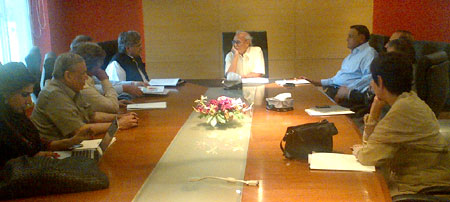
|
|
| |
|
|
| |
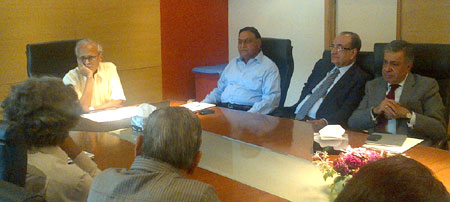
|
|
| |
|
|
| |
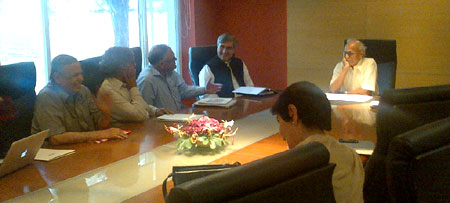
|
|
| |
|
|
| |
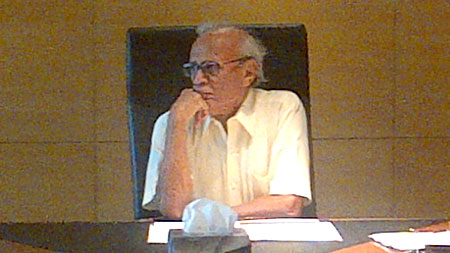
|
|
| |
|
|
| |
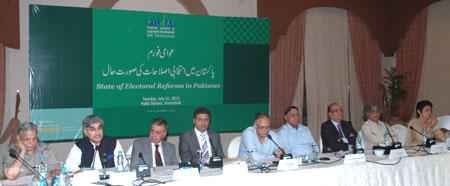
|
|
| |
|
|
| |
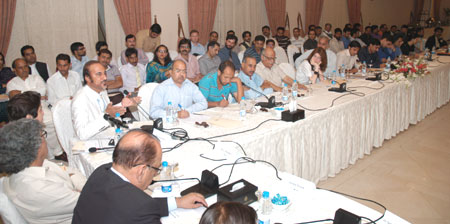
|
|
|
|
|
|
|
|
|